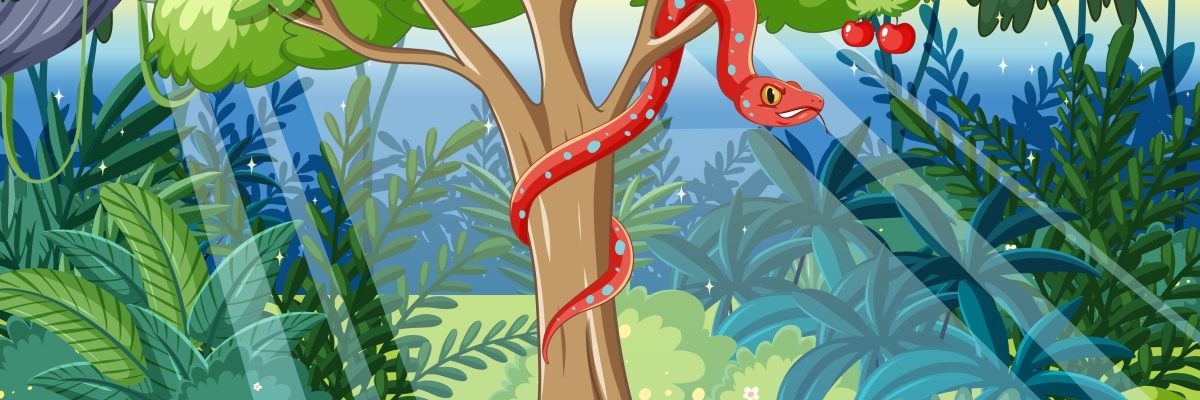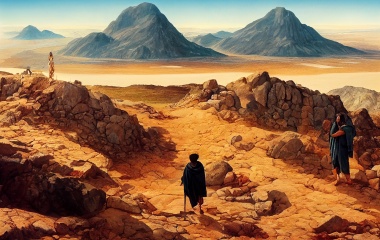
"It was for this reason that man was first created as one person [Adam]…to teach that no man is the same as another; therefore, every person must say, ‘For my sake the world was created’” (Sanhedrin 37a). The desire to be different and to make a difference is part and parcel of being human. We are unique individuals and must be allowed to express that uniqueness. The need for personal creativity helps explain why so many children of successful businesspeople strike out on their own.
“Rabbi Yehoshua ben Zeruz, son of the father-in-law of Rabbi Meir, testified before Rabbi Yehuda HaNasi about Rabbi Meir that he ate the leaf of a vegetable in Beit She’an. Rebbe Yehuda HaNasi permitted [one to eat without taking tithes from] the entire area of Beit She’an based on his testimony” (Chulin 6b).
If Rav Meir could eat untithed vegetables from Beit She’an, that must mean that there is no need to tithe them. So powerful and instructive are the actions of Torah personalities that based on this one piece of evidence—from a brother-in-law, no less—Rabbi Yehuda HaNasi declared that the laws of tithes do not apply to Beit She’an. Despite having been considered part of Israel for generations, the fact that Rav Meir ate its vegetables without giving tithes must mean that it is actually outside the halachic boundaries of the Land of Israel.
As one might imagine, this daring and original ruling did not go unchallenged. “His brothers and his father’s household united against him and said to him: ‘In a place where your fathers and the fathers of your fathers treated untithed produce as forbidden, you treat it as permitted?’” For generations, no one dared eat without tithing—a sin our Sages claim is punishable by death at the hands of heaven—and you have the chutzpah to say you know better?
Yet Rebbe was not moved, citing biblical precedent for such an approach. In the aftermath of Aharon’s death and complaining of the people, a plague of snakes struck, killing “many people” (Bamidbar 21:6). Upon instruction from G-d, Moshe made a copper serpent so that those bitten could look upwards to it—and heaven—and be cured.
Not surprisingly, this “magical” serpent eventually became an object of idolatry. And it remained that way until Chizkiyahu destroyed it. This despite the fact that two of the most righteous kings before him, Asa and Yehoshaphat, did not destroy the idols. This is especially puzzling as the Gemara notes that they had made it their mission to root out idolatry from Israel. Why, then, did they not destroy the copper serpent? Rebbe explains that, “a place was left by his father for him to attain greatness. So, too, by me [regarding untithed vegetables], my father left a place for me to attain greatness” (Chulin 7a).
So important is leaving “work” for the next generation that one may even leave idolatry in the land so that the next generation may merit eradicating it[1].
That the older generation must give way to the younger is crucial for the advancement of society. It would be a very sad and meaningless world if everything had been taken care of by prior generations. This is true in every sphere of life—economic, social, scientific, religious or any other. If our parents leave us a perfect society, what will we do?
This is why Rav Meir—the same Rav Meir who ate the untithed vegetables—interprets G-d's noting that His creation was tov me’od as a reference to death, using a play on words to read the verse as tov hamavet (Breisheet Rabba 9). As painful as it may be, the concept of death is “very good”. If our ancestors did not die, our lives would be next to meaningless. Each generation needs to achieve greatness, to make its unique contribution—and that often requires new modes of thinking and action.
“From here we learn that a Torah scholar who says an [original] law, ein mazeekin oto, we do not ask him to retract”. What folly it is to ask someone to retract a new teaching just because it is original or even radical! Doing so prevents the development of new ideas, new inventions and new solutions to old and new problems alike. Imagine how much poorer we would all be had scientists heeded the words of too many religious leaders—and some of their colleagues—urging them to retract their new and radical ideas. Rejecting something new because it is new is a great way to doom a society to the Dark Ages.
“Some say, ein mazneekin oto,” we may not ridicule his words, something that says much more about one’s own ignorance and insecurity than the original teaching of others. One who is confident in the correctness of one’s position calmly debates others;one whose beliefes are based on faith alone are wont to resort to ridicule when presented with opposing ideas. How sad!
“Some say, ein mazcheekin oto”, that we dare not engage in ad hominem attacks, claiming the new idea reflects arrogance borne of not paying attention to the lessons of one’s teachers. How convenient, yet foolish to attack the person—and we all have something for which we are worthy of being attacked—thereby pre-empting any need to actually discuss the proposal.
That this Talmudic passage appears but once, and in the first chapter of a masechet not typically learned by most, is unfortunate. Clearly, too many have failed to put these teachings into practice.
Imagine if such innovations as the Pruzbul, or the ban on polygamy, the Heter Iska, much of Maimonides, the codification of Jewish law, or the novel interpretations (of Rav Yitzchak Elchanan Spektor) to free agunot, to name just a few, had been rejected due to their novel, and yes, radical nature.
The chidush, the novel insight, is the cornerstone of Judaism. It is how Torah can remain relevant, exciting and enticing. Rav Moshe Feinstein, zt”l, in the introduction to his collection of responsa, Iggrot Moshe, explains that a pre-requisite of a true posek is to be fearless and unafraid to disagree with those who came before him. This is so even as he acknowledges that he pales in comparison to his predecessors. Once one reaches the level of being able to answer halachic queries, one may and must express one’s own view, even if they disagree with the greatest of the past.
We live in a world where change is constant, rapid and powerful. Let us heed the words of Rav Kuk: hayashan titchadesh vehachadash yitkadesh, “the old will be renewed and the new will be sanctified”[2].
[1] This is the simple reading and meaning of the Gemara and is how Rashi understands it. Others find this explanation troubling—can one knowingly let idolatry fester for another generation?—and thus, they explain that G-d caused them to err in not removing the idolatry, leaving that task for future generations.
[2] The above seems to be at variance with the famous slogan of the Chatam Sofer, chadash assur min Hatorah, “the new is forbidden from the Torah”. This statement, taken totally out of context from the Mishna in masechet Orlah, is itself a tremendous chidush, novel claim. It was used as the battle cry against Reform (one can argue whether that was effective or not), and only on those specific issues of dispute. The Chatam Sofer was well aware that this “slogan” did not reflect actual Jewish halachic teaching. That this approach impacted and continues to impact on the development of halacha is, in my view, a generally sad (even if perhaps necessary) reality, one that does not reflect organic Jewish teaching. As all who study this subject are well aware, with few, if any, exceptions, no Jewish group actually practices chadash assur min hatorah, even if they may pay it lip service. To do so is to deem oneself irrelevant.



